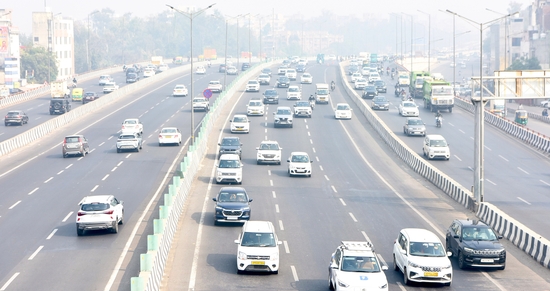New Delhi, The Supreme Court rejecting a plea for FIR into the alleged discovery of burnt cash wads from the official residence of Delhi High Court judge Yashwant Varma has brought into focus its 1991 verdict virtually granting immunity to judges.

A five-judge Constitution bench in the K Veeraswami v. Union of India, directed no criminal case should be registered against a judge of the high court, chief justice of a high court or a judge of the Supreme Court unless the chief justice of India was consulted in the matter.
Under the Constitution, only President and Governors are granted immunity from criminal prosecution.
The 1991 verdict granted a virtual immunity to judges of constitutional courts and held, “…no criminal case shall be registered …against Judge of the High Court, Chief Justice of High Court or Judge of the Supreme Court unless the CJI is consulted…”
It added, “Due regard must be given by the Government to the opinion expressed by the Chief Justice. If the Chief Justice is of opinion that it is not a fit case for proceeding under the Act, the case shall not be registered. If the CJI himself is the person against whom the allegations of criminal misconduct are received the Government shall consult any other Judge or Judges of the SC.”
On Friday, a bench headed by Justice Abhay S Oka termed as “premature” the plea against Justice Varma and said an in-house inquiry was in progress and there would be several options open to the CJI after probe’s conclusion.
While dealing with a case of alleged sexual harassment, the top court in 2014 laid down the in-house procedure to probe allegations against a judge of constitutional courts.
In the first stage of the in-house procedure, the court said, the prima facie veracity of allegations contained in complaint would be ascertained.
“If so, whether a deeper probe is called for. The first stage does not contemplate an in-depth examination of the allegations. It requires merely an assessment based on the contents of the complaint, and response of the concerned judge,” the court said.
The court noted the chief justice of the high court was only required to determine whether a deeper probe was required.
“This is to be done, on the basis of a logical assessment made on a consideration of the response of the concerned Judge …,” it added.
The top court had said the “second stage of the in-house procedure” relating to sitting judges of high courts could lead to serious consequences.
The second stage is monitored by none other than the CJI, it said.
Only if the CJI endorsed the view expressed by the chief justice of the high court that it required a deeper probe they would constitute a “three-member committee”, taking the procedure to the second stage.
This committee would comprise two chief justices of the high courts , aside from a judge of a high court.
The second stage postulated a deeper probe.
The top court had said though the three-member panel was at liberty to devise its own procedure, the inherent requirement was that the procedure fell in consonance with the rules of natural justice.
“Herein, for the first time, the authenticity of the allegations is to be probed on the basis of an inquiry. The incumbents of the three-member committee would have no nexus with the judge concerned. Not only would the judge concerned have a fair opportunity to repudiate the allegations levelled against him, even the complainant would have the satisfaction that the investigation would not be unfair. The in-house procedure was devised to ensure exclusion of favouritism, prejudice or bias,” it said.
On the culmination of the inquiry by the panel, it was required to record its conclusions followed by a report to the CJI.
The court pointed out the report could either lead to the conclusion that there was no substance in the allegations levelled against the judge in question or there was sufficient substance in the allegations.
“In such eventuality, the three-member committee, must further opine, whether the misconduct levelled against the judge concerned is so serious, that it requires initiation of proceedings for the removal of the concerned Judge; or that, the allegations contained in the complaint are not serious enough to require initiation of proceedings for the removal of the judge concerned,” it had said.
If the panel concluded that the misconduct was not serious enough for initiating proceedings for the judge’s removal, the CJI would advise the judge, and may also direct to place the report of the panel on record.
“If the committee has concluded, that there is substance in the allegations, for initiation of proceedings, for the removal of the judge concerned, the CJI shall proceed as under:- The judge concerned will be advised, by the CJI, to resign or to seek voluntary retirement. In case the judge concerned does not accept the advice of the CJI, the CJI, would require the chief justice of the high court concerned, not to allocate any judicial work, to the judge concerned,” the top court had said.
If the judge concerned did not abide by the advice of the CJI to resign, the CJI would intimate President, the Prime Minister, of the findings of the committee warranting initiation of impeachment, it added.
This article was generated from an automated news agency feed without modifications to text.

